This article was co-authored by Nicolette Tura, MA. Nicolette Tura is an Authentic Living Expert who operated her own wellness business for more than ten years in the San Francisco Bay Area. Nicolette is a 500-hour Registered Yoga Teacher with a Psychology & Mindfulness Major, a National Academy of Sports Medicine (NASM) certified Corrective Exercise Specialist, and is an expert in authentic living. She holds a BA in Sociology from the University of California, Berkeley and got her master's degree in Sociology from SJSU. She constantly draws from her own wounds and challenges; with her training in the healing arts and sociology, she offers potent content, powerful meditations, and game-changing seminars on inspiring elevation on a personal and corporate level.
There are 7 references cited in this article, which can be found at the bottom of the page.
wikiHow marks an article as reader-approved once it receives enough positive feedback. In this case, 91% of readers who voted found the article helpful, earning it our reader-approved status.
This article has been viewed 197,338 times.
Someone has really hurt you and you find yourself feeling so sad, angry, or bitter that you can barely concentrate. Any time you see that person – or even just any time you close your eyes – all you can do is replay what happened and wallow in all of your sad feelings. If you want to move on with your life and learn to move past the pain, then you have to make a choice to forgive and forget. Easier said than done, huh? Read on to find out how to do it and see for yourself.
Steps
Changing Your Perspective
-
1Let go of resentment.[1] If you want to ever really forgive the person who wronged you, then you have to kick all of those bitter and resentful feelings to the curb. Let go of the part of you that hates the other person or wishes him or her harm or failure; if you hang on to these negative feelings, then they will plague your own life and make it hard for you to find happiness, so the sooner you see that letting go of your resentment is the right thing to do, the better.[2]
- Sure, the person really hurt you, but if you waste energy in resenting the person, then you’ll only be letting that person cause you even more harm. Take the higher ground and let go of those nasty feelings.
- It’s better if you admit that you’re feeling resentment first instead of being in denial about it. Talk about your feelings to a friend. Write them down. Do what you have to do to get them out there so you can get rid of them faster.
-
2Consider the scheme of things. In the moment, you may feel that the person absolutely ruined your life or made you feel absolutely miserable. Okay, so maybe one of your friends forgot to invite you to her party; maybe your significant other said something hurtful to you in the heat of the moment. Could they have done something a lot worse? Will whatever they did really cause you pain in another few weeks – or in another few months? Chances are that sure, you’ve been hurt, but that it’s not the end of the world.
- It may feel like the end of the world, just then. But if you give yourself time to cool off, you’ll see that it’s not so.
- Take a step back and look at your life. Filled with mostly good things, right? Was the thing the person did to you really bad enough to put all of that in jeopardy?
Advertisement -
3See if there’s a lesson that can be learned. Think of yourself as a student instead of a victim. It’s convenient, and even safe, to think of yourself as a victim when someone has wronged you, but instead, try to put a positive spin on the situation and see if there’s something that you can really learn from the experience.[3] Maybe you’ll learn not to be so trusting. Maybe you’ll learn not to get into a situation where your gut tells you get away. Even if you’re feeling hurt or upset, the situation can shape your future interactions, and may help you not get hurt as you move forward.[4]
- At the time, it’s easy to think that the experience has only been a bad one. But if you truly process what happened, it can lead to something positive in the future.
- If you accept that there’s a lesson to be learned, then you’ll be less likely to resent the person for hurting you.
-
4Put yourself in the person’s shoes. Try to see the situation from that person’s perspective. Maybe your boyfriend didn’t tell you that he took a weekend trip with his friends because he knows you’re prone to jealousy. Maybe your best friend didn’t tell you about her new relationship because she’s afraid you’ll judge her. Or maybe the person who hurt you really didn’t mean to do it and is feeling really, really horrible about everything that happened.[5]
- Remember that there are two sides to every story. You may feel like the complete victim, but you might have hurt the person, too.
- It may feel silly to feel sorry for someone who messed up. But think of the times when you’ve hurt people and really, really regretted your actions. There’s a chance that the person is feeling even worse than you are.
-
5Think of all of the good things the person did for you. You may be really hurt by whatever your mother, sister, significant other, or friend did to you, but try to think about all of the great things that person did for you too. You may want to get dramatic and think that the entire relationship was a huge mistake and that every interaction with the person who hurt you has caused you nothing but pain, but that is rarely the case. Try warming up to the person by thinking of all the times that person really was a good friend, support system, or shoulder to cry on.
- Make a list of all of the great things the person did for you and all of the memories you shared. Refer to it when you’re feeling angry or resentful if you need to.
- Hey, if you’ve thought long and hard about all of the good things the person has done for you and you really can’t come up with anything, then maybe you really are better off without the person in your life. But this will rarely happen. If the person didn’t do that much for you to begin with, then you wouldn’t be so angry after he or she hurt you, would you?
-
6See if you’ve ever wronged the person. Look at the flipside. Remember that time two years ago when you accidentally told your best friend you thought she was a follower? Or that time that you completely forgot your sister’s birthday and went drinking with your friends instead? Chances are that you’ve caused some pain in the past, and the person managed to get over it. Relationships are long and complicated, and it’s likely that pain has been caused by both sides.[6]
- Remind yourself of how you felt after you hurt the person– and how much you wanted to be forgiven.
-
7Know that forgiving actually relieves stress.[7] Studies have shown that being unforgiving and dwelling on the injustices that were done to you can actually raise your blood pressure, increase your heart rate, make your muscles more tense, and lead you to be much more stressed out than if you worked on forgiving the person instead. Cultivating feelings of forgiveness has been shown to make people feel calmer and more emotionally stable. So, if you want to be selfish about it, then know that forgiving the person will actually make you feel better physically and mentally. And who doesn’t want that?[8]
- The longer you hold on to your angry feelings, the worse your body and mind will feel. And why do that to yourself?
- Remember that forgiveness really is a choice. You can decide to start forgiving, and to stop harboring all of those feelings of ill-will in your body, as soon as you want. Yes, forgiveness is a process, but there’s no need to hold it off.
Putting It into Action
-
1Give yourself time to cool off. Even if you make the decision to start forgiving today, it doesn’t mean that you have to call up the person who hurt you and talk about it right away. If you’re still so angry, hurt, sad, or disappointed that you can barely see straight, or that you just don’t quite feel like yourself, then it’s perfectly okay to take some time to think about it. The person may be rushing to talk to you and to make things right, but calmly explain that you do want to talk about it, and that you need a bit more time to process everything.
- Giving yourself a bit of time to heal and reflect can help you figure out what to say to the person when you do talk and can keep you from getting too angry and saying something that you’ll regret.
-
2Accept the person’s apology. Talk to the person and make sure that he or she is truly sorry and that his or her feelings are truly genuine. Make eye contact with the person and see that he or she is being really sincere and feels true remorse for what happened. If the person is saying sorry just to say it, then you’ll know. Once you see that the person really cares, then be honest and say that you do accept the apology if you mean it. Let the person talk and evaluate the words, and if you think it’s time to accept the apology, then say so.[9]
- Remember that there’s a difference between accepting the person’s apology and forgiving him or her fully on the spot. You can accept an apology and then give yourself more time to get over it.
- If you’re trying to accept the apology but just can’t do it, be honest. Tell the person that you want to be able to accept and forgive, but that you just can’t do it yet.
-
3Let the person know how you feel. Talk about how the person has hurt you. Share all of your pain, your feelings, and your doubts. Make the person see how much his or her actions have really affected you and how much you’ve thought it all over. There’s no need to talk just to make the person feel even worse, but if you want to get something off your chest, then now’s the time. If you just accept the apology and don’t talk about what happened, then you’re much more likely to be angry and bitter for longer.
- You don’t have to be mean about it. Just say something like, “I’ve really been feeling terrible because…” or “I’m having a hard time dealing with the fact that…”
-
4Take a break from the person if you need to. You can talk to the person, share your feelings, and accept the apology, but that doesn’t mean you have to go back to being BFF right away. If you need to take a week, a month, or even more time than that off, away from the person, then be honest about it. Say something like, “I really do want to rebuild our relationship, but I’m going to need to take some time to come to terms with what happened on my own first.” It’s okay to go at your own pace.
- If a month has passed and you still can’t bring yourself to see the person, that’s fine. If another month has passed – and then another – and you still can’t do it, then you may have to consider whether or not it’s even possible to repair your relationship with the person.
-
5Show compassion. You may not be feeling very compassionate toward a person after he or she has harmed you. But if you want to rebuild your relationship more quickly and make both of you feel better, then you have to show compassion for how the person is feeling. Think about how terrible the person feels for hurting you and recognize that nobody’s perfect; the person is likely suffering a lot without your love and kindness, and that’s surely taking a toll on him or her. Even if you were wronged, you should take the high road and recognize that the person is upset, too.
- If anything, you can feel sorry for the person. He or she must not be in a very good place if he or she had hurt you so badly.
Forgetting the Pain
-
1Rebuild your trust. Take things slow with the person and work on repairing your relationship. You may not trust the person right away and you may have some doubts about whether or not you can continue to be friends or to date each other, and that’s perfectly normal. Take things slow and hang out in low-pressure situations while giving each other space to be alone, too. Don’t open up completely to the person and have less intense conversations until you feel comfortable sharing.
- This may not feel as great as your relationship used to be, but if you want to go back to how things were before you were hurt, then you’ll have to take baby steps to get there.
-
2Accept it if you can’t forget the pain. So you’ve tried everything. You’ve given yourselves time apart. You’ve shared your feelings with the person who hurt you. You’ve shown compassion and have considered the situation from that person’s perspective. You’ve tried hanging out in low-pressure situations. But no matter what you do, you can’t stop thinking about how hurt you are, being angry with the person, and doubting that you’ll ever be able to fully trust him again. Though this is unpleasant, it’s perfectly natural, and if you can’t get over it, then it’s better to admit that than to be in denial about how you feel.
- Sometimes the pain is so deep that you won’t be able to brush it aside and act like nothing happened. Now you have to decide – even though you can’t forget the pain, will you be able to find a way to deal with it that allows you to still spend time with the person who hurt you?
- Accept it if you can’t keep being with the person. Maybe the wound was so deep that being with the person feels like picking the scab all over again. If you really just can’t get over it, then there’s no point in forcing something that just isn’t there anymore.
-
3Focus your energy somewhere else. Make sure to have other things on your mind while you’re working on rebuilding your relationship. Spend more time running and training for that 10K next month. Work on finishing that short story you’ve been working on forever so you can submit it to a local contest. Enjoy your relationships with people who haven’t hurt you. Find something else that makes you really happy and that you can look forward to, and you’ll spend less time feeling the pain.[10]
- One day, you may look as see that hey, the pain is no longer there anymore. You might have thought that would never happen, right?
- Staying busy will keep you moving forward and having positive things to look forward to. If you give yourself too much time to wallow, you’ll only feel worse and will be less likely to forget what happened.
-
4Take time to reflect. Though staying busy and active will help you heal faster, you shouldn’t be so busy that you don’t have a second to breathe or think about what happened to you. Make sure you have time for “me time,” that you can write in a journal about your feelings, or that you can just take some time to turn off your computer, television, and phone and focus on just inhabiting your own mind and body. Being quiet with yourself can help you figure out how you really feel about the situation; the faster you know exactly what you think, the faster you can move forward.
- Plan a weekly or bi-weekly date with yourself when you have nothing to do but spend time with yourself. This will help you calm down, think, and get rid of those angry feelings.
-
5Know that only positive revenge is worth it. You may be so hurt that you want to get the person who hurt you back to make him or her feel the same pain that you felt. However, this will only make you feel more stressed out, angry, and bitter, and it won’t solve anything. If you really feel the need to seek vengeance, then know that the best revenge you can get is just to live a great, accomplished life, to be happy, and to not let what happened get to you in the end. This may not sound as sweet as slapping the person in the face or hurting him or her the same way they hurt you, but in the end, you’ll feel much better for being your best self instead of stooping down to that person’s level.[11]
- Just live your life and enjoy being yourself and doing the things you love to do. If you spend all your time trying to make the person who hurt you feel terrible, then you’ll never be able to go on.
-
6Move forward instead of looking back. Focus on the future and all that it holds for you – whether the person who hurt you is in it or not. If all you do is wallow in the past and think about all of the ways that you were wronged and that life hasn’t been fair for you, then you’ll never be able to forgive and forget. Instead, have gratitude for all of the people who do make your life great and all of the opportunities you have and think about all of the wonderful things that lie ahead.
- Focus on the goals you want to meet in the future that will make your life even better. Make a plan for achieving them instead of thinking about all of the things that went wrong for you.
- Continue to work on yourself. Improve those things you want to work on and see how much better you feel as you become a more caring, compassionate, and well-rounded person.
- You have made a choice to forgive and forget, and you should be proud of yourself for doing that, even if it takes longer than you hoped to get there.
Expert Q&A
Did you know you can get expert answers for this article?
Unlock expert answers by supporting wikiHow
-
QuestionHow do you forgive and forget when someone hurts you?
 Nicolette Tura, MANicolette Tura is an Authentic Living Expert who operated her own wellness business for more than ten years in the San Francisco Bay Area. Nicolette is a 500-hour Registered Yoga Teacher with a Psychology & Mindfulness Major, a National Academy of Sports Medicine (NASM) certified Corrective Exercise Specialist, and is an expert in authentic living. She holds a BA in Sociology from the University of California, Berkeley and got her master's degree in Sociology from SJSU. She constantly draws from her own wounds and challenges; with her training in the healing arts and sociology, she offers potent content, powerful meditations, and game-changing seminars on inspiring elevation on a personal and corporate level.
Nicolette Tura, MANicolette Tura is an Authentic Living Expert who operated her own wellness business for more than ten years in the San Francisco Bay Area. Nicolette is a 500-hour Registered Yoga Teacher with a Psychology & Mindfulness Major, a National Academy of Sports Medicine (NASM) certified Corrective Exercise Specialist, and is an expert in authentic living. She holds a BA in Sociology from the University of California, Berkeley and got her master's degree in Sociology from SJSU. She constantly draws from her own wounds and challenges; with her training in the healing arts and sociology, she offers potent content, powerful meditations, and game-changing seminars on inspiring elevation on a personal and corporate level.
Authentic Living Expert Understand that if we don't forgive the situation or the person, we end up suffering because it can take away our peace and our energy. Ask yourself what you learned from the situation and how much it is costing you to hold onto your feelings. You never have to tell that person you forgive them, but try to find ways to move on and ceremoniously honor that forgiveness.
Understand that if we don't forgive the situation or the person, we end up suffering because it can take away our peace and our energy. Ask yourself what you learned from the situation and how much it is costing you to hold onto your feelings. You never have to tell that person you forgive them, but try to find ways to move on and ceremoniously honor that forgiveness.
Warnings
- Burdens keep us from lifting off and dancing through life: extreme possibility of feeling lighter, happier and more content if you release your grudges.⧼thumbs_response⧽
- You may need to get new friends, hobbies and passions to fill the time and energy voids created in letting go of negative energy!⧼thumbs_response⧽
References
- ↑ Nicolette Tura, MA. Authentic Living Expert. Expert Interview. 23 January 2020.
- ↑ https://www.powerofpositivity.com/psychologists-explain-truly-forgive-someone-let-go/
- ↑ Nicolette Tura, MA. Authentic Living Expert. Expert Interview. 23 January 2020.
- ↑ https://www.psychologytoday.com/us/blog/mindful-anger/201409/how-do-you-forgive-even-when-it-feels-impossible-part-1
- ↑ https://au.reachout.com/articles/how-to-forgive-someone
- ↑ https://au.reachout.com/articles/how-to-forgive-someone
- ↑ Nicolette Tura, MA. Authentic Living Expert. Expert Interview. 23 January 2020.
- ↑ http://www.webmd.com/mental-health/features/forgive-forget?page=3
- ↑ https://lifehacker.com/how-to-accept-an-apology-1833442908
- ↑ Nicolette Tura, MA. Authentic Living Expert. Expert Interview. 23 January 2020.
- ↑ http://www.oprah.com/spirit/8-Ways-to-Forgive-and-Forget
About This Article
To forgive and forget, try to remember that forgiving someone is about helping yourself move on and feel better, and it doesn't invalidate what they did to you. Letting go of resentment and anger can actually make you healthier physically and mentally, so try to look at forgiving them as something you're doing for your personal well being. If it helps, try putting yourself in their shoes so you understand why they wronged you, which may make it easier to forgive them and move on. To learn how to forget the pain that someone has caused you, scroll down.
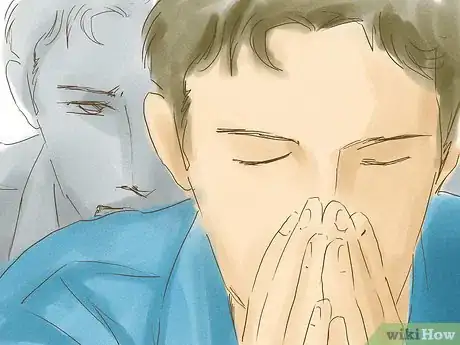



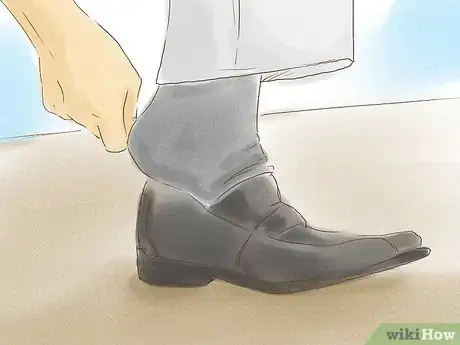


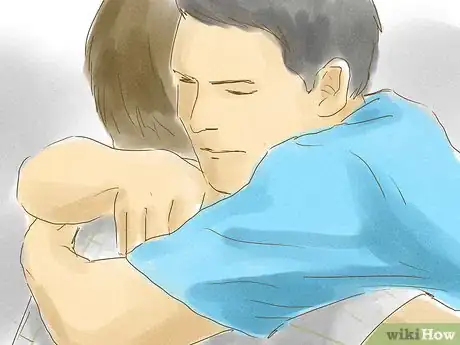
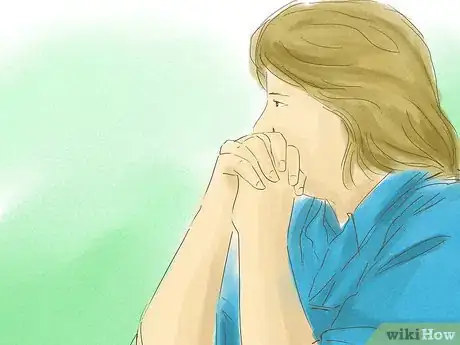


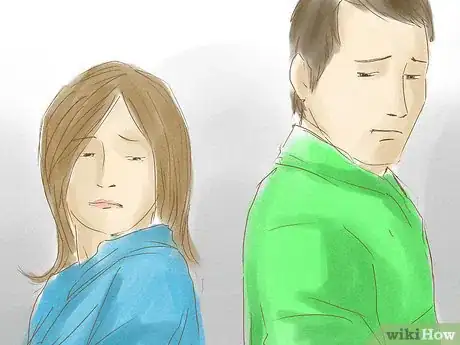
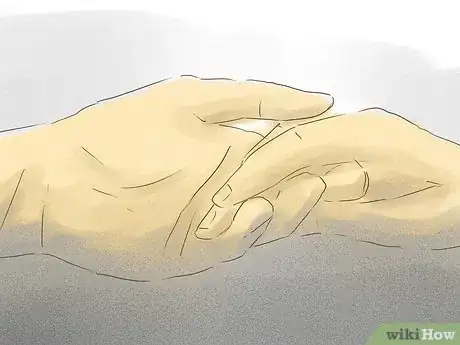
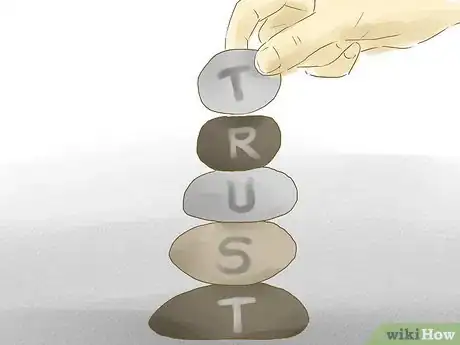

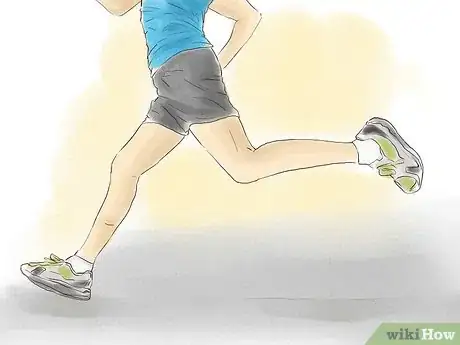


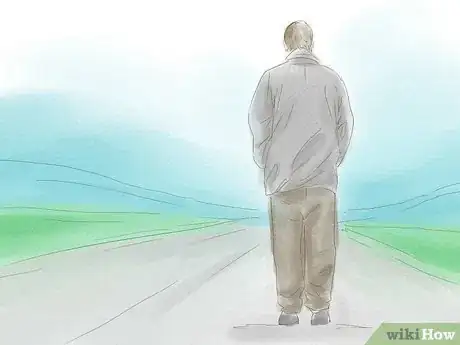







-Step-15-Version-2.webp)






















































